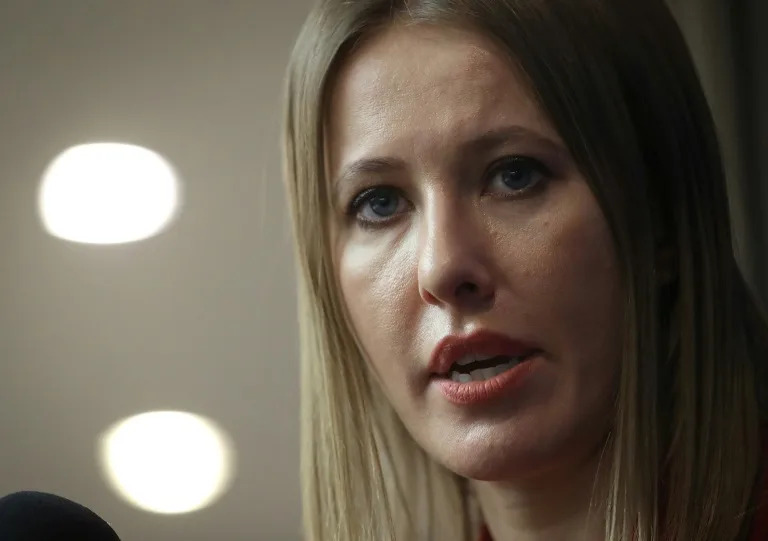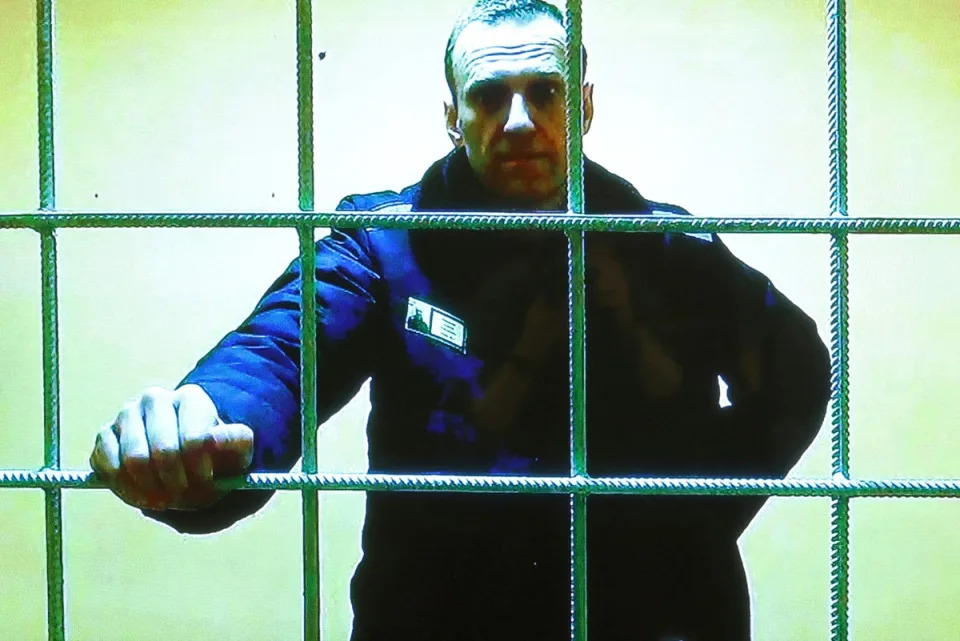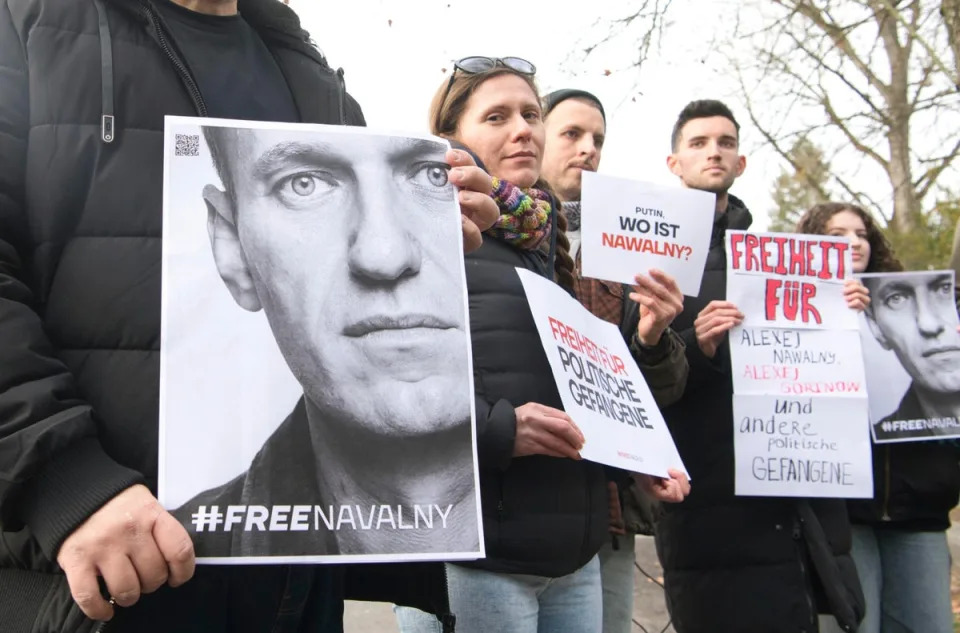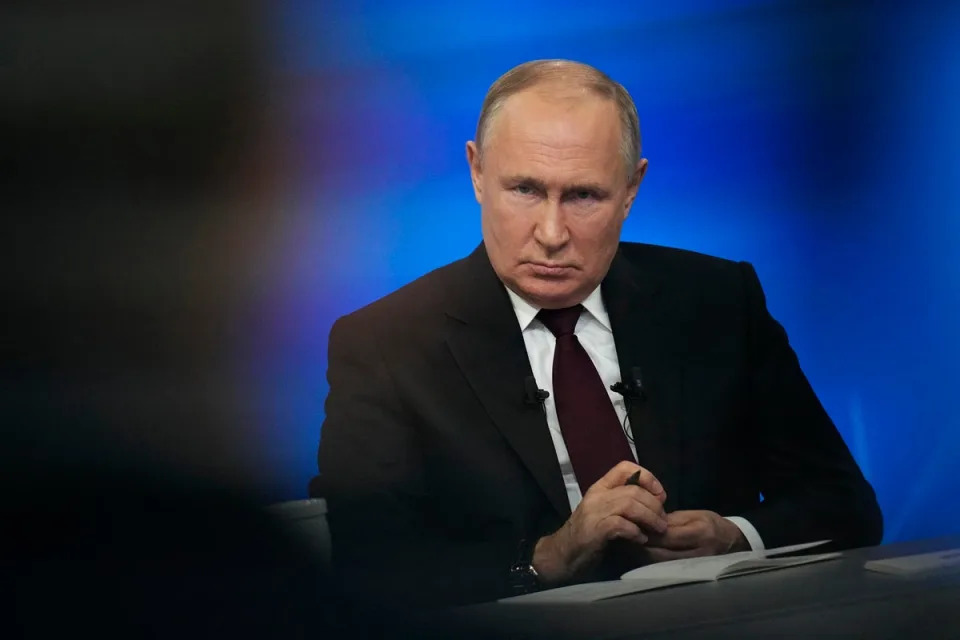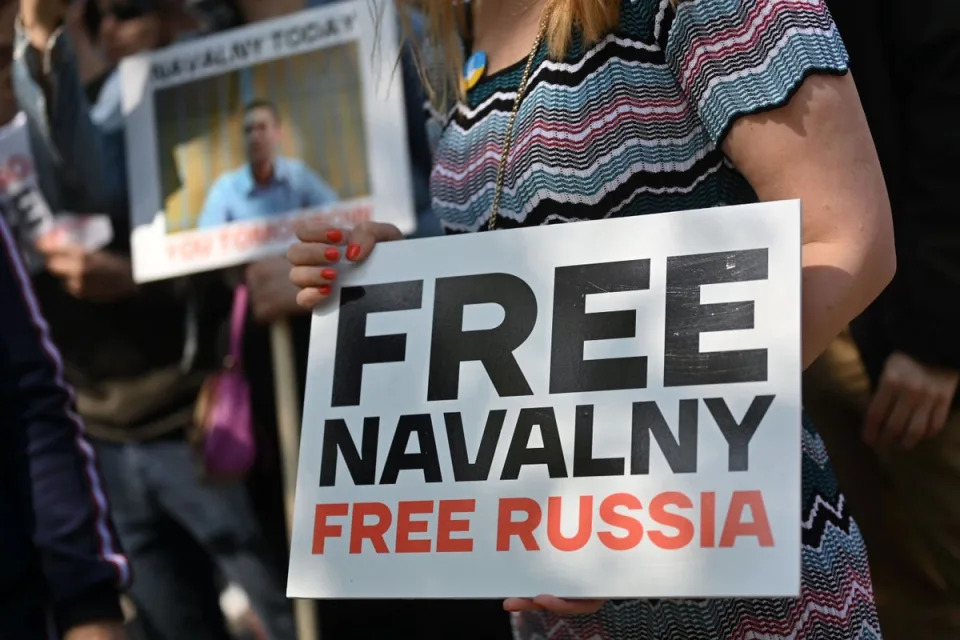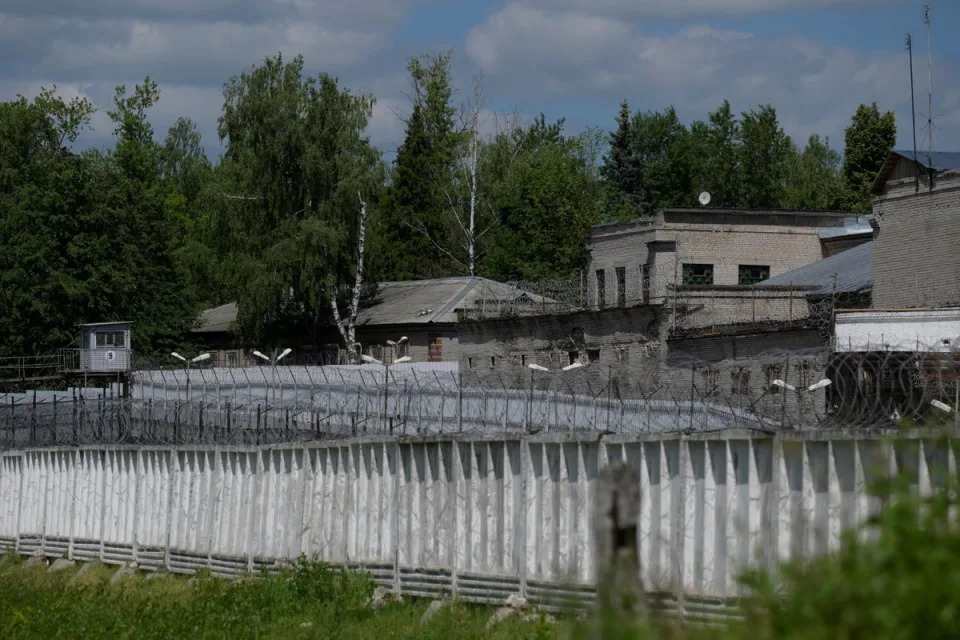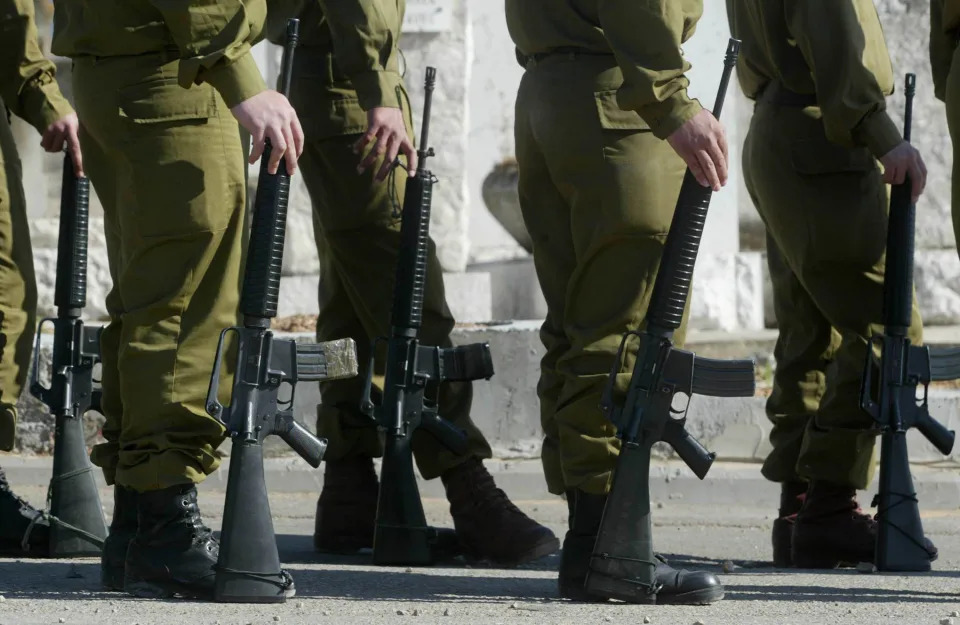YOU KNOW YOU ARE NOT FREE WHEN THEY LOCK UP THE POETS
Thu, 28 December 2023
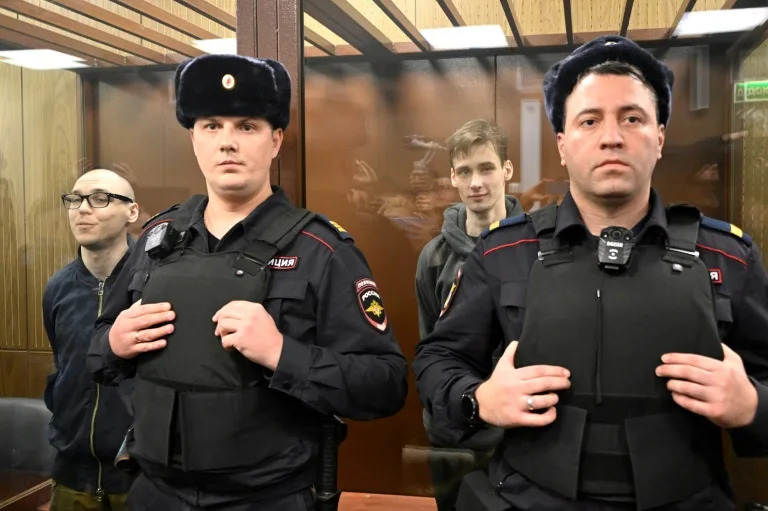
The two poets in court (Alexander NEMENOV)
A Moscow court on Thursday sentenced two men to several years in prison for taking part in the recital of verses against the Ukraine campaign during an anti-mobilisation protest last year.
Artyom Kamardin, 33, received a seven-year sentence for reciting a poem, and Yegor Shtovba, 23, was sentenced to five and a half years for attending the protest.
The two were seen behind a glass partition in a heavily-guarded courtroom.
Just before his sentencing, a smiling Kamardin recited a poem that refers to poetry as "gut-wrenching" and often disliked by "people accustomed to order".
After the sentence was read out, there were cries of "Shame!" from supporters in the courtroom, some of whom were later detained by police outside the court building, an AFP reporter saw.
Russian authorities have detained thousands for simple acts of protest against the offensive in Ukraine, with criticism effectively outlawed.
Kamardin has claimed that during his detention he was raped by police officers and forced to film an apology video as officers threatened his partner.
On the eve of his arrest in September 2022, he had recited his poem "Kill me, militia man!" on a Moscow square where dissidents have been gathering since the Soviet era.
Kamardin also shouted offensive slogans against the imperial "New Russia" project aiming to annex the south of Ukraine.
Both were convicted of "inciting hatred" and "calling for activities threatening state security".
Kamardin told the court he did not know his actions broke the law and asked for mercy.
"I am not a hero, and going to prison for my beliefs was never in my plans," he said in a statement, posted on his supporters' Telegram channel.
- 'Under torture' -
After the sentencing, his father Yury said: "This is a total outrage!"
Around two dozen friends came to support the defendants along with the poets' parents and wives.
Kamardin's wife Alexandra Popova was in the crowd.
"It is a very harsh sentence. Seven years for poems, for a non-violent crime," she told AFP, before being taken away by police officers.
She was later released but three others, including a journalist, were being detained Thursday evening, according to the independent news outlet SOTA.
The lawyer of one said that the authorities had accused them of "disturbing public order".
In an interview with AFP in late 2022, Popova had recounted her then boyfriend's arrest, saying officers threatened her with "gang rape", hit her and sprayed superglue on her cheeks and mouth.
Meanwhile Kamardin was taken to a separate room, where -- as he told his lawyer -- he was beaten and raped with a barbell.
Kamardin was also forced to film an apology video.
- Sorry for 'leaving you' -
Shtovba also insisted he did not break the law.
In his last statement in court, published by independent site Mediazona, he asked the judge: "What have I done that's illegal? Read poetry?"
He also addressed his mother, who he said depended on him financially.
"Mom, I know that you, more than anyone, believe in my innocence... Still, I'm sorry for how things turned out, leaving you and dad alone."
Nikolai Dayneko, who was arrested at the same time, was sentenced to four years in prison last May after entering a pre-trial agreement, according to OVD-info.
These are the latest in a string of heavy sentences against Russians who protested the offensive, in trials critics denounce as absurd.
Germany's foreign ministry condemned Thursday's verdict, accusing the Kremlin of "letting the judiciary stifle freedom of expression".
In mid-November judge Oksana Demiasheva sentenced artist Alexandra Skochilenko to seven years in prison for swapping price tags with slogans criticising Russia's offensive in Ukraine.
Skochilenko had replaced five price tags in a branch of one of Russia's largest supermarket chains in Saint Petersburg with messages about the conflict.
The trials of ordinary Russians usually take place away from public attention, unlike those of prominent critics.
Most of Russia's high-profile opposition figures have fled the country or are behind bars, including Alexei Navalny.
bur/acc/rox/yad
Thu, 28 December 2023

The two poets in court (Alexander NEMENOV)
A Moscow court on Thursday sentenced two men to several years in prison for taking part in the recital of verses against the Ukraine campaign during an anti-mobilisation protest last year.
Artyom Kamardin, 33, received a seven-year sentence for reciting a poem, and Yegor Shtovba, 23, was sentenced to five and a half years for attending the protest.
The two were seen behind a glass partition in a heavily-guarded courtroom.
Just before his sentencing, a smiling Kamardin recited a poem that refers to poetry as "gut-wrenching" and often disliked by "people accustomed to order".
After the sentence was read out, there were cries of "Shame!" from supporters in the courtroom, some of whom were later detained by police outside the court building, an AFP reporter saw.
Russian authorities have detained thousands for simple acts of protest against the offensive in Ukraine, with criticism effectively outlawed.
Kamardin has claimed that during his detention he was raped by police officers and forced to film an apology video as officers threatened his partner.
On the eve of his arrest in September 2022, he had recited his poem "Kill me, militia man!" on a Moscow square where dissidents have been gathering since the Soviet era.
Kamardin also shouted offensive slogans against the imperial "New Russia" project aiming to annex the south of Ukraine.
Both were convicted of "inciting hatred" and "calling for activities threatening state security".
Kamardin told the court he did not know his actions broke the law and asked for mercy.
"I am not a hero, and going to prison for my beliefs was never in my plans," he said in a statement, posted on his supporters' Telegram channel.
- 'Under torture' -
After the sentencing, his father Yury said: "This is a total outrage!"
Around two dozen friends came to support the defendants along with the poets' parents and wives.
Kamardin's wife Alexandra Popova was in the crowd.
"It is a very harsh sentence. Seven years for poems, for a non-violent crime," she told AFP, before being taken away by police officers.
She was later released but three others, including a journalist, were being detained Thursday evening, according to the independent news outlet SOTA.
The lawyer of one said that the authorities had accused them of "disturbing public order".
In an interview with AFP in late 2022, Popova had recounted her then boyfriend's arrest, saying officers threatened her with "gang rape", hit her and sprayed superglue on her cheeks and mouth.
Meanwhile Kamardin was taken to a separate room, where -- as he told his lawyer -- he was beaten and raped with a barbell.
Kamardin was also forced to film an apology video.
- Sorry for 'leaving you' -
Shtovba also insisted he did not break the law.
In his last statement in court, published by independent site Mediazona, he asked the judge: "What have I done that's illegal? Read poetry?"
He also addressed his mother, who he said depended on him financially.
"Mom, I know that you, more than anyone, believe in my innocence... Still, I'm sorry for how things turned out, leaving you and dad alone."
Nikolai Dayneko, who was arrested at the same time, was sentenced to four years in prison last May after entering a pre-trial agreement, according to OVD-info.
These are the latest in a string of heavy sentences against Russians who protested the offensive, in trials critics denounce as absurd.
Germany's foreign ministry condemned Thursday's verdict, accusing the Kremlin of "letting the judiciary stifle freedom of expression".
In mid-November judge Oksana Demiasheva sentenced artist Alexandra Skochilenko to seven years in prison for swapping price tags with slogans criticising Russia's offensive in Ukraine.
Skochilenko had replaced five price tags in a branch of one of Russia's largest supermarket chains in Saint Petersburg with messages about the conflict.
The trials of ordinary Russians usually take place away from public attention, unlike those of prominent critics.
Most of Russia's high-profile opposition figures have fled the country or are behind bars, including Alexei Navalny.
bur/acc/rox/yad
Russian poet receives 7-year prison sentence for reciting verses against war in Ukraine
The Associated Press
Thu, 28 December 2023
A Russian poet was given a 7-year prison sentence Thursday for reciting verses against Russia's war in Ukraine, a tough punishment that comes during a relentless Kremlin crackdown on dissent.
Moscow's Tverskoi District Court convicted Artyom Kamardin on charges of making calls undermining national security and inciting hatred, which related to him reading his anti-war poems during a street performance in downtown Moscow in September 2022.
Yegor Shtovba, who participated in the event and recited Kamardin's verses, was sentenced to 5 1/2 years on the same charges.
The gathering next to the monument to poet Vladimir Mayakovsky was held days after President Vladimir Putin ordered a mobilization of 300,000 reservists amid Moscow's military setbacks in Ukraine. The widely unpopular move prompted hundreds of thousands to flee Russia to avoid being recruited into the military.
Police swiftly dispersed the performance and soon arrested Kamardin and several other participants.
Russian media quoted Kamardin's friends and his lawyer as saying that police beat and raped him during the arrest. Soon after, he was shown apologizing for his action in a police video released by pro-Kremlin media, his face bruised.
Authorities have taken no action to investigate the alleged abuse by police.
During Thursday's hearing, Kamardin's wife, Alexandra Popova, was escorted out of the courtroom by bailiffs after she shouted “Shame!” following the verdict. Popova, who spoke to journalists after the hearing, and several other people were later detained on charges of holding an unsanctioned “rally” outside the court building.
Between late February 2022 and earlier this month, 19,847 people have been detained in Russia for speaking out or protesting against the war while 794 people have been implicated in criminal cases over their anti-war stance, according to the OVD-Info rights group, which tracks political arrests and provides legal assistance.
The crackdown has been carried out under a law Moscow adopted days after sending troops to Ukraine that effectively criminalized any public expression about the war deviating from the official narrative.
The Associated Press
Thu, 28 December 2023
A Russian poet was given a 7-year prison sentence Thursday for reciting verses against Russia's war in Ukraine, a tough punishment that comes during a relentless Kremlin crackdown on dissent.
Moscow's Tverskoi District Court convicted Artyom Kamardin on charges of making calls undermining national security and inciting hatred, which related to him reading his anti-war poems during a street performance in downtown Moscow in September 2022.
Yegor Shtovba, who participated in the event and recited Kamardin's verses, was sentenced to 5 1/2 years on the same charges.
The gathering next to the monument to poet Vladimir Mayakovsky was held days after President Vladimir Putin ordered a mobilization of 300,000 reservists amid Moscow's military setbacks in Ukraine. The widely unpopular move prompted hundreds of thousands to flee Russia to avoid being recruited into the military.
Police swiftly dispersed the performance and soon arrested Kamardin and several other participants.
Russian media quoted Kamardin's friends and his lawyer as saying that police beat and raped him during the arrest. Soon after, he was shown apologizing for his action in a police video released by pro-Kremlin media, his face bruised.
Authorities have taken no action to investigate the alleged abuse by police.
During Thursday's hearing, Kamardin's wife, Alexandra Popova, was escorted out of the courtroom by bailiffs after she shouted “Shame!” following the verdict. Popova, who spoke to journalists after the hearing, and several other people were later detained on charges of holding an unsanctioned “rally” outside the court building.
Between late February 2022 and earlier this month, 19,847 people have been detained in Russia for speaking out or protesting against the war while 794 people have been implicated in criminal cases over their anti-war stance, according to the OVD-Info rights group, which tracks political arrests and provides legal assistance.
The crackdown has been carried out under a law Moscow adopted days after sending troops to Ukraine that effectively criminalized any public expression about the war deviating from the official narrative.

